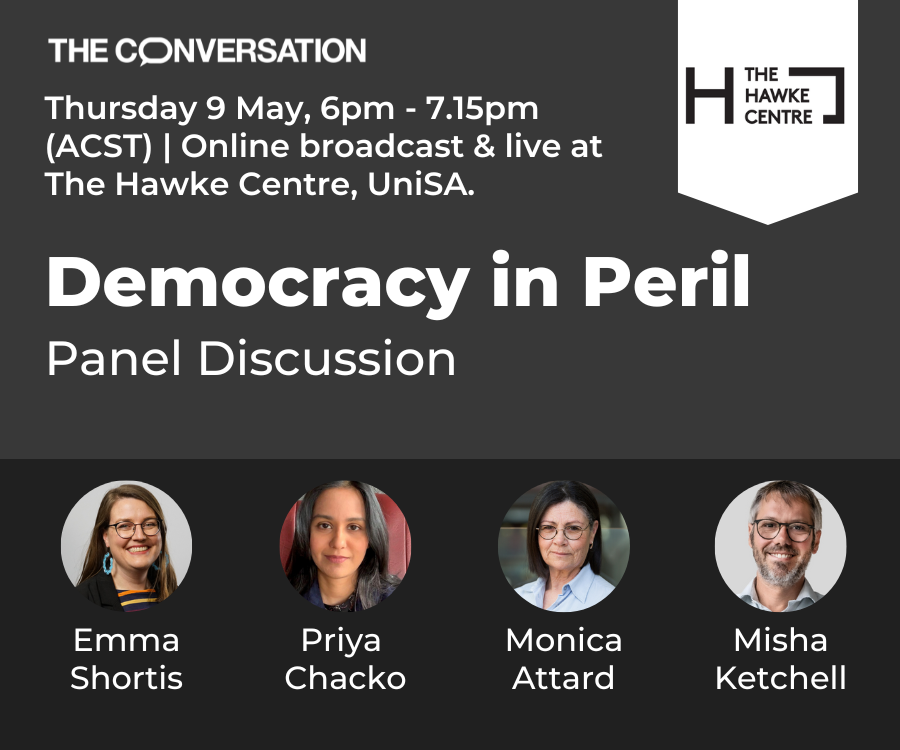|
It must be budget season. All around Canberra, the trees are vivid shades of red, yellow and orange, and the federal government is starting to roll out its pre-budget announcements. Over the weekend, we had two significant new policies for higher education.
Yesterday morning the government said it wants to “wipe” about $3 billion in student debt and change the way student loans are indexed. At the moment, debts are pegged to inflation, which has become increasingly stressful and problematic for students. As higher education policy expert Andrew Norton writes, “last year, high inflation pushed the indexation rate to 7.1%, the highest since 1990”.
In the face of growing community pressure, the government now plans to base indexation on whichever is lower: the Consumer Price Index (CPI), which measures inflation, or the Wage Price Index (WPI), which measures hourly wage rates in the same job. The government will also backdate the new system to 2023, thereby cancelling an estimated $3 billion in debt.
While the Universities Accord final report in February recommended the CPI/ WPI approach, Norton notes that actually cancelling debt is a “surprise move”. It should be a welcome one for the roughly 3 million Australians with student debt. But it doesn’t necessarily mean the issue is solved. As Norton warns, the WPI has only been lower than the CPI four times since 2000: “the government’s fix for 2023 leaves students vulnerable to times when the CPI and the WPI are both high”.
In a second announcement yesterday evening, the government revealed a “Commonwealth Prac Payment” of $319.50 per week for those studying to be a teacher, nurse, midwife or social worker. Currently, some students have to give up paid jobs to complete lengthy unpaid work placements as part of their degrees. They fall into “placement poverty” as a result.
But with some degrees left out of the new payment, which is not due to start until mid-2025, expect fierce debate about the fine print.
|

|
Judith Ireland
Education Editor
|
|

Andrew Norton, Australian National University
The federal government has announced plans to change the way debts are indexed. But it may not help students over the long term.
|

Michelle Grattan, University of Canberra
The new indexation arrangement will be backdated to all HELP, VET Student Loan, Australian Apprenticeship Support and other student support loan accounts operating on June 1 last year.
|

Michelle Grattan, University of Canberra
A new Prac Payment will assist about 68,000 eligible higher education students and more than 5,000 VET students each year.
|

Peter Breadon, Grattan Institute; Jessica Geraghty, Grattan Institute
Sugary drinks cause weight gain and increase the risk of a range of diseases. But a tax can reduce sales and make us healthier.
|

Dale Boccabella, UNSW Sydney; Ranjana Gupta, Auckland University of Technology
Some churches operate huge business enterprises and collect rent on extensive property holdings. This income isn’t taxed.
|

Luis Gómez Romero, University of Wollongong; María de la Macarena Iribarne González, University of Wollongong
Nearly all countries in the region have criminalised either femicide or feminicide, which has had a tremendous impact on society.
|

Adam Simpson, University of South Australia
Insisting nuclear power is the only way for Australia to achieve net zero by 2050 is a classic move from the playbook of those who oppose urgent action on climate change.
|

Joshua Black, Australian National University; Frank Bongiorno, Australian National University
Scott Morrison’s Plans for Your Good is part political memoir, part self-help book, and very strange.
|

Marina Deller, Flinders University; Kate Douglas, Flinders University
Stand-up comedy has always been autobiographical, but now a new generation of comedians are adapting their lives (or some version of it) into scripted series.
|

Jose Antonio Lara-Hernandez, Auckland University of Technology
Changing work habits and shifting environmental priorities demand new models of urban redevelopment. Architectural ‘exaptation’ uses the past to reimagine the future.
|
Politics + Society
|
-
Joshua Black, Australian National University; Daniel Casey, Australian National University
Laws governing how the records of Australia’s political past are kept need to be overhauled.
-
David Waller, University of Technology Sydney; Kaye Chan, University of Technology Sydney; Mihajla Gavin, University of Technology Sydney; Sonika Singh, University of Technology Sydney
Government bodies and community organisations have tried to tackle the problem of violence against women in marketing campaigns. Have they worked?
|
|
Health + Medicine
|
-
Siobhan O'Dean, University of Sydney; Lucinda Grummitt, University of Sydney; Steph Kershaw, University of Sydney
We need to look at the roots of gendered violence, including the experiences and behaviours of perpetrators.
|
|
Science + Technology
|
-
Richard de Grijs, Macquarie University
China’s Change'6 is going to explore the Moon’s far side and bring back precious lunar soil for scientists to study.
|
|
Arts + Culture
|
-
Nicola Henry, RMIT University; Alice Witt, Deakin University
Sometimes it’s easy to point to figures like Andrew Tate and assume they are the problem. But they are more likely a symptom of it.
-
James Hall, Edith Cowan University
The temporary boycott led to the removal of music from artists including Harry Styles Adele, Billie Eilish, Drake, Post Malone, Kendrick Lamar and Kanye West.
|
|
Books + Ideas
|
-
Paul Giles, Australian Catholic University
With the passing of Paul Auster, the aesthetics of postmodernism retreated another significant step back into the past tense of history.
|
|
| |
|
|
|
The Conversation AU
Melbourne VIC, Australia
•
Full Time
|

|
|
The Conversation AU
Melbourne VIC, Australia
•
Full Time
|

|
|
|
|
| |
| |

|
| |
| |
| |
Featured Events, Courses & Podcasts
|
View all
|
|
|
|
| |
| |
| |
| |
| |
|
|